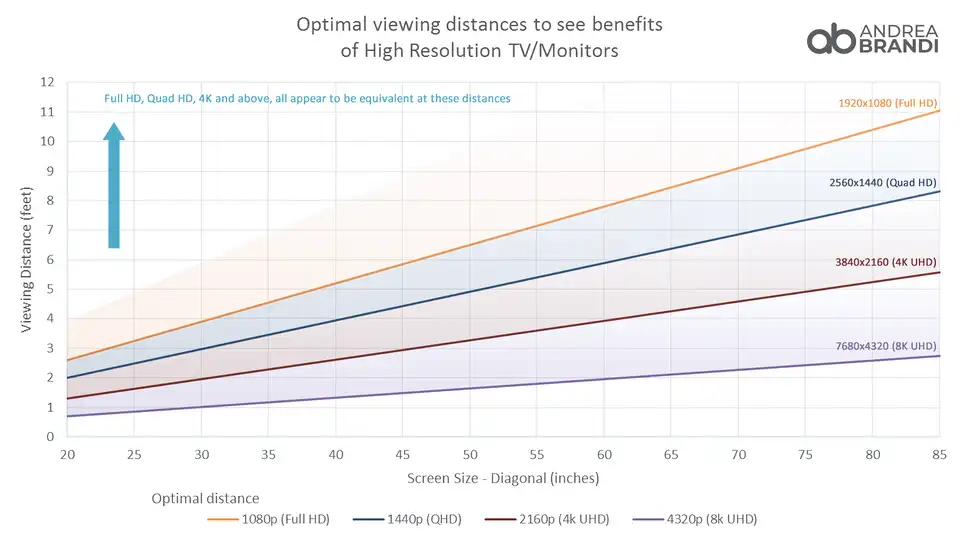Learn more on calculations

Minimum distance
The audience should sit at least this distance from the screen. This is the Shortest Recommended Viewing Distance based on Field-of-View being too wide: This distance is calculated on the peripheral vision field of view of the human eye. The average FOV width for the human eye is 140 degrees.
The rule is that if the viewer sits any closer than this distance to the screen and looks at one side of the screen, they will not be able to see the other side of the screen with their peripheral vision. This equates to a 70-degree field of view when the person is looking at the center of the screen.
Maximum distance
The audience should sit at most this far from the screen. This is based on THX Longest Recommended and Longest Allowable viewing distances: THX publishes standards to which movie theaters must adhere to receive THX certification. THX recommends that the back row of seats in a theater have a 36 degree or greater viewing angle and requires a minimum of a 26 degree or greater viewing angle to receive certification. (Note: sitting closer to the screen results in a wider field-of-view.)
Visual Acuity distance
The Visual Acuity Distance is based on visual acuity or clarity of vision. This distance is calculated based on the reference resolving power of the eyes. The human eye with 20/20 vision can detect or resolve details as small as 1/60th of a degree of arc.
This distance represents the point beyond which some details in the picture are no longer able to be resolved, so pixels begin to blend together. Closer to the screen than this may result in the need for higher resolution display. This value should be lowered if visual acuity is worst then 20/20, raised if it’s better.